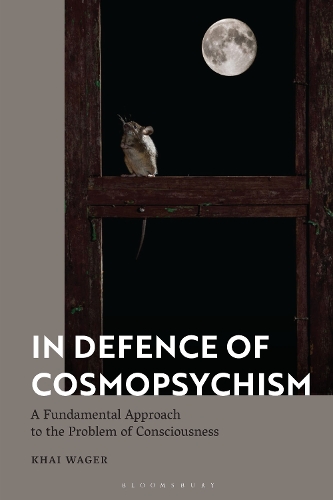
In Defence of Cosmopsychism: A Fundamental Approach to the Problem of Consciousness
(Hardback)
Publishing Details
In Defence of Cosmopsychism: A Fundamental Approach to the Problem of Consciousness
By (Author) Dr Khai Wager
Bloomsbury Publishing PLC
Bloomsbury Academic
13th November 2025
United Kingdom
Classifications
Professional and Scholarly
Non Fiction
Philosophy: metaphysics and ontology
Philosophy of religion
Psychology: states of consciousness
Cognition and cognitive psychology
Physical Properties
Hardback
280
Width 156mm, Height 234mm
Description
In this original study Khai Wager explores cosmopsychism an approach that argues that the cosmos as a whole is conscious and that human consciousness is derived from it and its relation to cognate views such as panpsychism, panqualityism and perennialism.
The problem of phenomenal consciousness surfaces when we try to understand how it can be that our human consciousness arises from entirely non-conscious matter. Reflecting the growing interest in panpsychism, which argues consciousness does not emerge from entirely non-conscious matter, but rather that all matter is in some sense already conscious, Wager draws our attention to the combination problem: how do these small instances of consciousness combine to form larger instances He demonstrates that cosmopsychism turns panpsychism on its head, reasoning to macro-level consciousness from a more fundamental form at the cosmic level. However, it faces its own challenge in the derivation problem: how is macro-level consciousness derived from the cosmic consciousness
This volume brings a cosmopsychism approach into critical engagement with panpsychism and investigates their respective handling of these problems, together with looking beyond these views to panqualityism and perennialism. Setting out an overall defence of cosmopsychism and attuning to enduring currents of human thought, it will be of interest to students and scholars of philosophy of mind and metaphysics as well as philosophy of religion, philosophy of psychology and cognitive science.
Author Bio
Khai Wager is Postdoctoral Research Fellow and Researcher Co-Investigator on the Non-Religious Spiritual Practice and the Well-Lived Life Project at the University of Oxford, UK.
